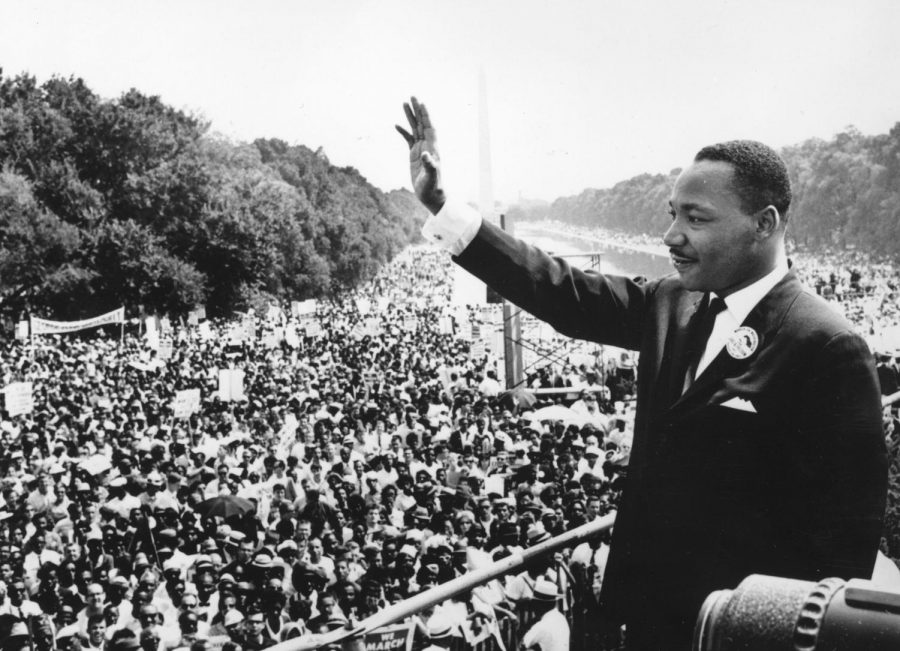The importance of mingling with other races and cultures
Agence France Presse—Getty Images
Dr. Martin Luther King, Jr., giving his famous “I Have a Dream” speech in Washington D.C.
It’s finally Black History Month, which means that it’s time to look back on important black figures ranging from Harriet Tubman and Rosa Parks to Nelson Mandela and Barack Obama. No list of prominent black people is complete without Dr. Martin Luther King, Jr., though, and his message is the one that I feel affects our lives the most here at UNC Wilmington.
It’s no secret that UNCW is a predominantly white school, but it’s also important to note that it’s not solely white. This school has black students, Hispanic students, Asian students, Native American students, Polynesian students, mixes of them all, and so many more.
When you pit this multi-colored image against the knowledge that your grandparents likely went to segregated schools as kids, it’s nice to see that race doesn’t play as big of a part in how you go about getting your education today, academically-speaking.
“Education” is the word of the day, though, because even though we are able to get into a school with a mixture of races and cultures, it’s a waste if you don’t take advantage of your surroundings and interact with these other people. Going out and mingling with those who are different from you should be as important to your college path as your English 101 class.
My very first opinion article for The Seahawk was about how much I value the flock-together mentality of the black population on campus, but though I thoroughly enjoy conversations with other black students that make me realize how alike our childhoods were, I also appreciate talking to my white friends and seeing just how similar or dissimilar our pasts were.
My friend Paul and I spent the night at each other’s houses regularly back in high school, and no matter how many times we did this, each time was still a learning experience. Paul’s mom introduced me to homemade brick oven pizza and whatever “quiche” is. In return, I taught Paul the art of using hot sauce and what Kool-Aid is really supposed to taste like.
I’m sure that not every white person makes quiche, just like I know for a fact that not every black person likes hot sauce on everything, but if Paul and I didn’t spend as much time together as we did, neither of us would have the culinary knowledge we now have.
It’s not just food, though. If you’re white and only hang out around other white people, you might never know the pressure of watching a soul train form at a black family reunion. If you’re Chinese and only hang out around Chinese people, you might not get to experience a traditional Mexican wedding.
There are also more serious advantages, like how sometimes just knowing of a racially-based problem simply cannot compare to hearing someone talk about their experiences.
My friend’s Turkish husband explained racial tensions in Turkey to me and said that his father completely denounces half of his lineage because it’s been “tainted.” I met a Mexican woman in community college who told me how the conversation about illegal immigration has helped demonize some of her family out west who are legally American citizens. A friend of mine here at UNCW recently explained how the Chinese Exclusion Act of 1882 still affects his family to this day.
These are stories that I could learn about online or pick up in the news, but my knowledge of the world has been enhanced simply by speaking to people that come from different backgrounds and it feels different to hear it directly from someone who is affected by it all.
Having a multi-racial friend group can enhance your lifestyle by introducing you to new ways to accomplish things, giving you a new perspective on how those unlike you see the world, and allowing you to tell your own story. We’re in college to learn, and the lessons you learn from your peers just might be the most important ones you learn in your entire life.








Vicky Denman • Feb 22, 2021 at 8:55 am
We should mingle